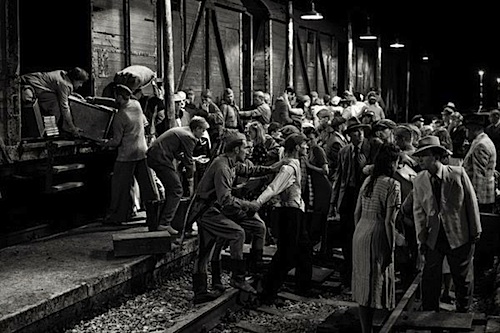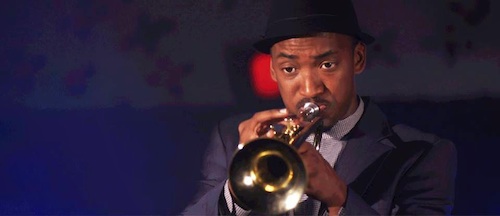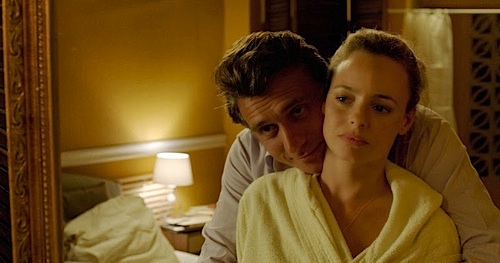By Joe Bendel. As a former firefighter, Jeon-mo was briefly famous for saving a group of children. Even though he now runs a florist shop, he still likes to think of himself as one of the good guys. However, when his daughter is abducted, her captor’s ominous demands will push him to his breaking point and fundamentally shake his comfortable self-image. Instead of ransom, Jeon-mo is instructed to kidnap another child to exchange for her in Yoo Won-sang’s Guardian, which screens this Tuesday as part of the free Korean Movie Night series at New York’s Asia Society.
Jeon-mo and his wife are generally happy managing their shop and running a singing telegram business on the side. He dotes on his bratty young son and frets over his older sister as she approaches middle school years. Initially, a strange caller claims to have snatched their son, but it turns out the cruel game-player actually has their daughter. After stringing Jeon-mo along on a ransom drop that never happens, the kidnapper final reveals his real demand. Jeon-mo is to take a very specific little boy who will be at an appointed place at a certain time and wait to swap him for his daughter.
Given no choice by the kidnapper, Jeon-mo is forced to take the frightened boy to his home for the night. He was already feeling profoundly guilty, but matters get even more complicated when his son recognizes the boy as one of his classmates. However, Yoo has an even more sinister twist in store for viewers.
Kidnapping thrillers tend be rather murky affairs, but Guardian takes its long dark night of the soul to new levels of blackness. Characters in the film do some truly awful things, but it is difficult to pass judgement, given their circumstances. Perhaps most disturbing is what happens when they try to do the right thing. Still, Yoo does not leave the audience completely bereft of consolation, but he hardly ties the film up a neat sentimental bow.

It is pretty unsettling to watch Jeon-mo fall from a position of domestic tranquility and rectitude to utter desperation and self-loathing, but Kim Su-hyeon makes every step believable and painfully compelling. Likewise, Lee Joon-hyeok is quietly forceful as another player caught up in the game. However, the genuinely terrified-looking performances from Yoo Hae-jeong and No Kang-min as the young respective victims are what will really disturb viewers.
Guardian is a tough film with a decidedly dim view of human nature, but it reflects an uncompromising aesthetic vision from Yoo in his impressive feature directorial debut. He grabs the viewers by the lapels and drags them through the film at breakneck speed. Still, his decision to hint at but never fully explain the kidnapper’s motive is a mistake. After what he puts us through, he owes us some answers. Nevertheless, those who can digest a thriller marinated in bile will be impressed with his chops. Recommended for emotionally strong fans of Korean cinema, Guardian screens (for free) at the New York Asia Society this Tuesday (3/31), co-presented by the Korean Cultural Service.
Posted on March 31st, 2015 at 3:33pm.




